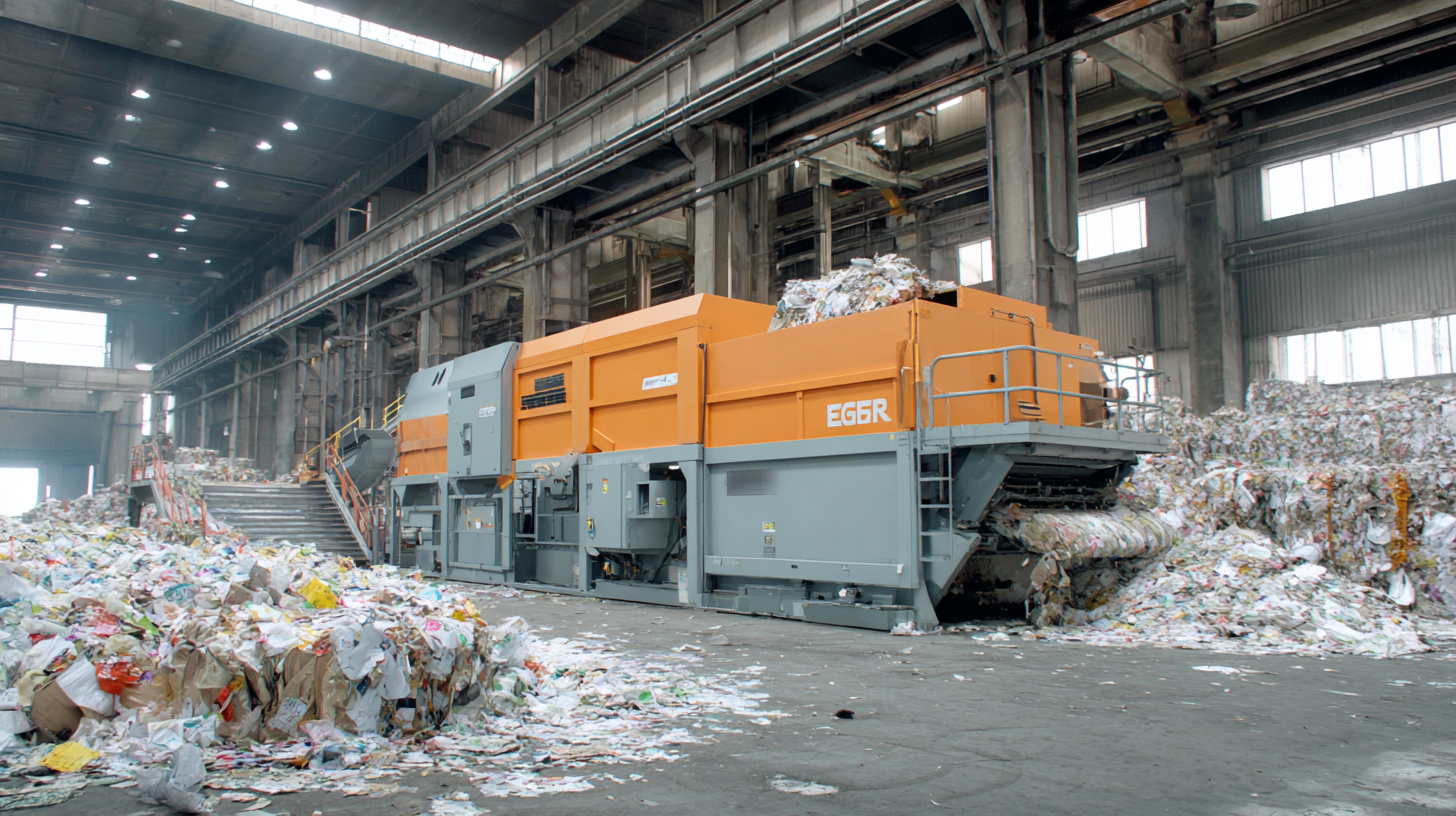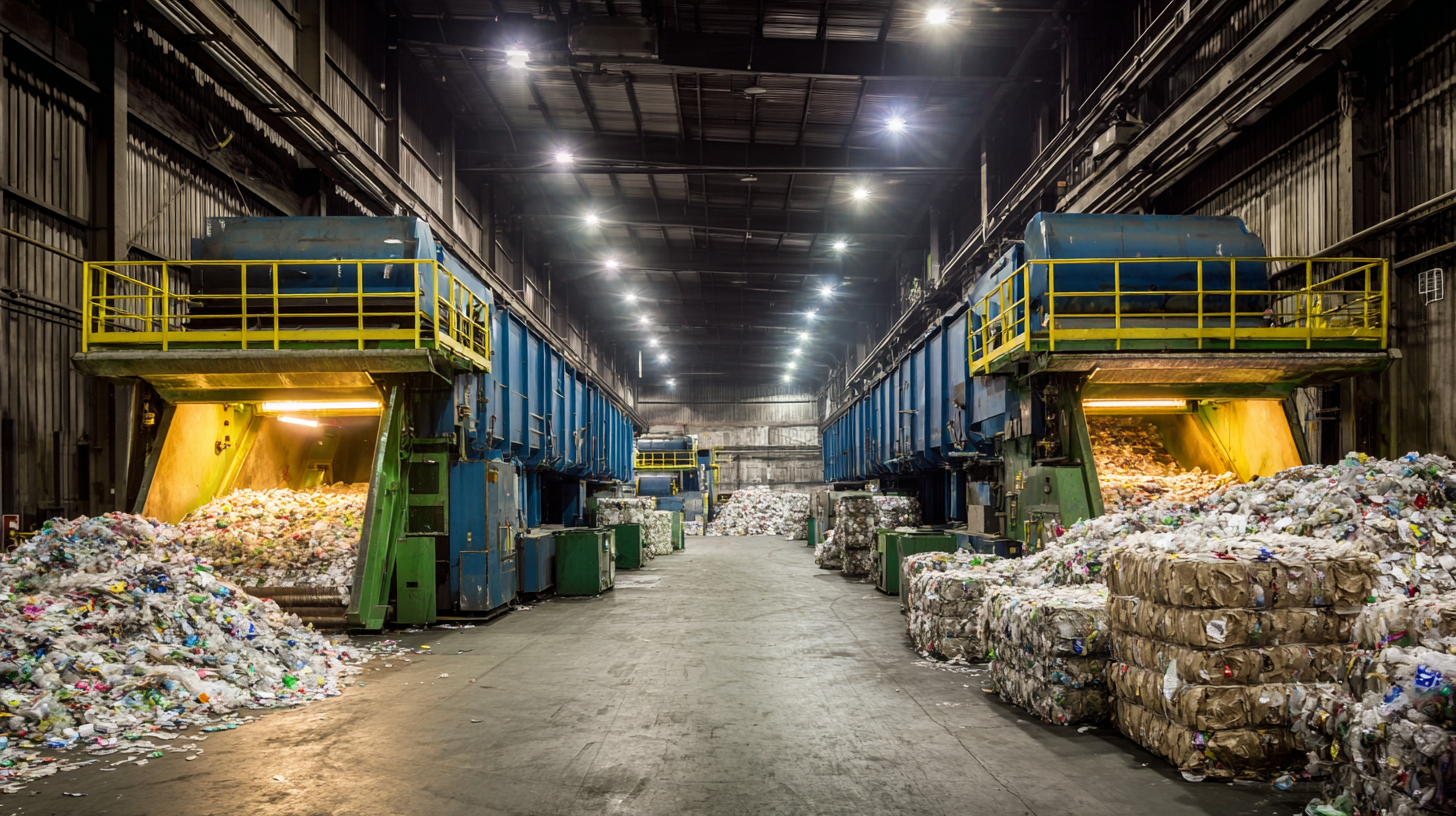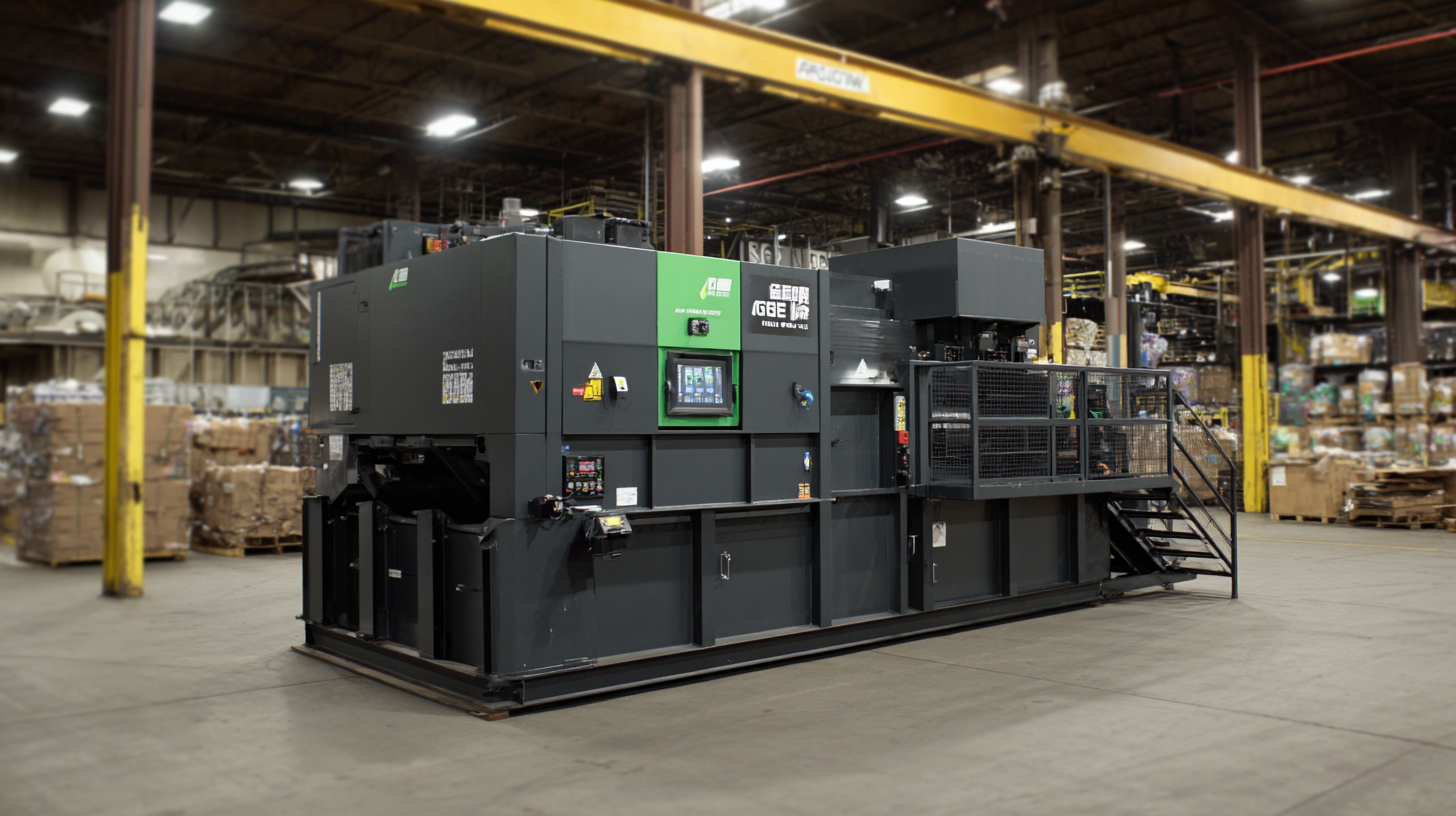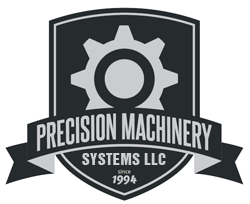2025 Trends in Waste Management: How to Choose the Best Industrial Trash Compactor for Your Business
As we approach 2025, effective waste management has become increasingly crucial for industries seeking sustainability and operational efficiency. The global waste management market is projected to reach approximately $530 billion by 2025, reflecting a growing recognition of the importance of waste reduction and resource recovery. A key component in this endeavor is the use of an Industrial Trash Compactor, which not only minimizes waste volume but also enhances recycling efforts and lowers disposal costs. With evolving regulations and consumer expectations demanding greater environmental responsibility, selecting the right compactor is essential for businesses aiming to improve their waste management strategies. This blog will explore the latest trends in waste management and guide companies in choosing the best Industrial Trash Compactor tailored to their specific needs.

Understanding the Importance of Waste Management in 2025
 In 2025, the importance of waste management continues to grow as companies increasingly recognize its impact on sustainability and operational efficiency. According to the Global Waste Management Market report, the industry is expected to reach $530 billion by 2025, underscoring the necessity for businesses to adopt innovative waste solutions. As regulations tighten and consumer expectations shift towards eco-friendliness, organizations must prioritize effective waste management strategies that minimize landfill contributions and enhance recycling efforts.
In 2025, the importance of waste management continues to grow as companies increasingly recognize its impact on sustainability and operational efficiency. According to the Global Waste Management Market report, the industry is expected to reach $530 billion by 2025, underscoring the necessity for businesses to adopt innovative waste solutions. As regulations tighten and consumer expectations shift towards eco-friendliness, organizations must prioritize effective waste management strategies that minimize landfill contributions and enhance recycling efforts.
When selecting an industrial trash compactor, efficiency and compliance with environmental regulations should be paramount. A well-chosen compactor not only reduces the volume of waste, leading to lower disposal costs, but also supports sustainability goals. Tips for choosing the right compactor include assessing your waste type, considering machine capacity, and exploring energy-efficient options that can further decrease your carbon footprint.
Moreover, businesses should stay informed about emerging trends in waste management technology. The introduction of smart compactors equipped with IoT capabilities can provide real-time monitoring of waste levels, optimizing collection schedules and reducing unnecessary pickups. By leveraging these advancements, companies can improve operational efficiency while contributing to a cleaner planet.
Key Factors to Consider When Choosing an Industrial Trash Compactor
When it comes to selecting the best industrial trash compactor for your business, there are several key factors you should consider to ensure efficiency and safety in your waste management process. One critical aspect is the compactor’s capacity and size. Choosing a model with a charge box substantially larger than standard options can enhance operational efficiency by requiring fewer emptying cycles, thus streamlining your workflow. Additionally, evaluating the energy efficiency of the motor plays a vital role in reducing long-term operational costs while minimizing environmental impact.
Another important consideration is the safety features integrated into the design of the compactor. Modern technologies offer advanced safety mechanisms that protect operators during the waste handling process, further enhancing workplace safety. Furthermore, understanding the capacity of your waste generation is essential; selecting a compactor that aligns with your business's specific volume needs can significantly improve waste handling efficiency. As the compactor market continues to evolve, keeping an eye on upcoming trends and innovations can help you make an informed choice that aligns with your operational goals.
2025 Trends in Waste Management: Key Factors in Choosing Industrial Trash Compactors
This chart illustrates the key factors influencing businesses when selecting industrial trash compactors in 2025. The data reflects the importance of efficiency, cost-effectiveness, durability, and environmental impact.
Evaluating Supplier Credentials: What to Look For
When selecting an industrial trash compactor for your business, evaluating supplier credentials is critical to ensure long-term sustainability and risk mitigation. In an era where environmental, social, and governance (ESG) issues are under increased scrutiny, understanding a supplier's commitment to these principles can prevent reputational and regulatory risks. Businesses should look for suppliers who maintain transparency in their operations, have a robust sustainability strategy, and can provide documented evidence of their ESG practices.
Moreover, it is essential to assess the cybersecurity measures of potential suppliers. A comprehensive evaluation should not only include sustainability credentials but also an appraisal of the supplier’s ability to protect sensitive data. Trusting suppliers blindly is no longer a feasible strategy; companies must actively verify that their partners have appropriate security protocols in place. This dual focus on sustainability and cybersecurity not only safeguards your business but also fosters a resilient supply chain capable of adapting to emerging challenges in waste management.
2025 Trends in Waste Management: How to Choose the Best Industrial Trash Compactor for Your Business - Evaluating Supplier Credentials: What to Look For
| Criteria | Description | Importance Level | Rating Scale (1-5) |
|---|---|---|---|
| Experience | Years in the industry and track record of performance. | High | 1-5 |
| Certification | Relevant certifications (ISO/ANSI) and compliance with regulations. | Medium | 1-5 |
| Customer Reviews | Feedback from previous clients regarding service and equipment. | High | 1-5 |
| After-Sales Support | Availability of maintenance and support services. | High | 1-5 |
| Product Range | Variety of compactor models and options available. | Medium | 1-5 |
| Sustainability Practices | Commitment to eco-friendly practices in manufacturing and operations. | Medium | 1-5 |
Comparing Different Types of Trash Compactors for Your Business Needs
When evaluating the best industrial trash compactor for your business, it's essential to take a closer look at the different types available on the market. From standard compactors and chute-fed models to smart compactors equipped with sensors and data tracking, each option offers unique benefits tailored to specific waste management needs. According to recent industry reports, implementing smart waste solutions can lead to a 30% reduction in waste collection costs while enhancing recycling rates.
Tip: Assess your waste volume and composition before making a decision. For instance, if your business generates a high volume of recyclable materials, consider investing in compactors specifically designed for this purpose, as they can optimize the separation process and reduce haulage frequency, leading to significant savings.
Furthermore, the rise of solar-powered compactors has revolutionized the approach to waste management. These compactors can compress waste while also providing insights into fill levels, making it easier to schedule pickups and reduce unnecessary trips. By leveraging technology, businesses not only cut costs but also contribute to sustainability initiatives, which is increasingly important in today’s eco-conscious market.
Tip: Research partnerships with service providers that align with your sustainability goals. Collaborating with companies that focus on environmentally-friendly solutions can enhance your waste management strategy and improve your business's overall efficiency.
The Role of Technology in Modern Waste Management Solutions
In the evolving landscape of waste management, technology plays a pivotal role in enhancing the efficiency and effectiveness of industrial solutions. Modern trash compactors are now equipped with smart features that not only streamline the waste disposal process but also optimize space utilization and reduce operational costs. For instance, sensors can monitor the fullness of containers, alerting staff when they need to be emptied, which minimizes overflowing and ensures compliance with environmental regulations.

Moreover, advanced data analytics tools are becoming indispensable in waste management strategies. Businesses can analyze waste generation patterns and make informed decisions on how to minimize waste and improve recycling rates. The integration of IoT devices in trash compactors allows for real-time data collection, giving companies insight into their waste management practices and enabling them to implement sustainable solutions efficiently. As companies seek to enhance their waste management processes, investing in these cutting-edge technologies will not only contribute to a cleaner environment but also improve their bottom line.
